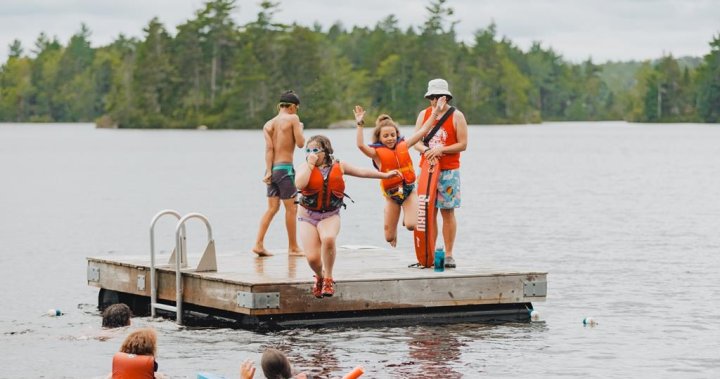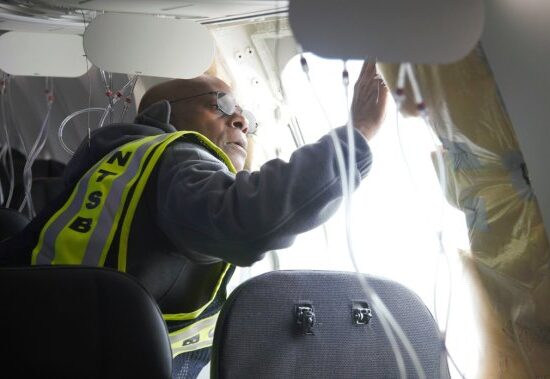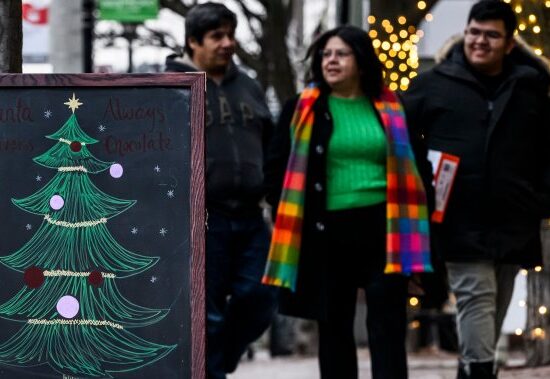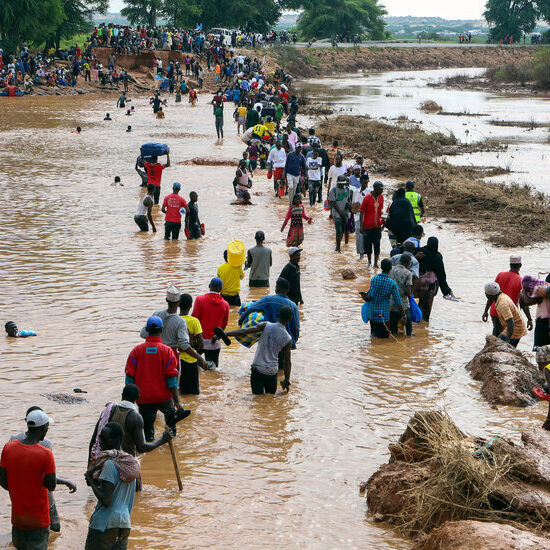
Nadia Clendon loves camp so much she only answers to her summer camp name – Potamus – even while at home.
“We do Sandy Beach Park for Potamus,” the 15-year-old said. “And we do gardening for Potamus.”
Nadia is autistic.
Her mother, Jana El-Guebaly, said Nadia’s experiences every summer – meeting friends and taking part in activities – mean so much to her she talks about it for months, even though she only attends for weeks.
But Nadia was at home in Calgary while speaking to Global News. Her was camp cancelled because the air quality was so poor.
“It took a good amount of time to get Nadia settled into the fact that today was not going to be a camp day,” El-Guebaly said.
Climate change is posing challenges for camps across the country. They’re needing to adapt to hotter weather and wildfire smoke.
Camp officials in Ontario and Alberta told Global News they’re focused on maintaining the core experience of camp – like building friendships on a canoe trip or sitting next to a campfire. But those activities might look different in order to keep kids comfortable and safe.
“We’ve sent N-95 masks on a lot of our longer out trips, especially in Algonquin Park, just in case they encounter more wildfire smoke,” Andrea Lewis said.

She’s a registered nurse and health co-ordinator for Camp Kawartha, a summer camp approximately 170 kilometres east of Toronto.
She also said Camp Kawartha’s cabins now all have air conditioning, and they keep campers out of the sun from about noon until around 2:30 p.m.
And staff now schedule more opportunities for campers to jump in the lake, she said, speaking from Toronto.
Lewis said the weather this summer has renewed focus on kids’ health, keeping a watchful eye for fatigue, more thirst, irregular breathing and headaches.
Children “absorb more heat from the environment and they produce more heat when they’re exercising,” Lewis said, adding that they sweat less than adults.
Dave Newnham, president of the Ontario Camping Association, which accredits camps in the province, said adapting means camps can still focus on providing the traditional activities – even if they look a little different.
“If we can’t have a campfire, then people are really creative,” he said, speaking from Hamilton.
“(Counsellors and campers) are creating … pretend fires out of cardboard painted red and orange. And they’re sitting around that giant fire, still singing songs,” he said.

Newnham, also the vice-president of camping and outdoor education for the YMCA of Southwestern Ontario, said that also extends to flexibility for when camps schedule a water regatta, for example, which likely won’t happen in the middle of the day anymore.
“Whether it’s El Niño, whether it’s climate change, whether it’s the forest fire situation, the environmental conditions in which we’re operating camps is going to continue to change. It’s not going to be the way it was 20 years ago. And we’re going to need to continue this type of conversation around how are we adapting,” he said.
Aurora Anderson, a member of the Alberta Camping Association board, said planning will likely include more indoor and air-conditioned activities, more funding for busing to and from those places and more sports designed to cool down participants.
“They’ve got the cooling towels, they’re playing lots of water games…. We also have water guns that we have water fights with,” she said, speaking from Calgary.
El-Guebaly stressed how important camp has been for both her children.
Her 15-year son, Jalen Clendon (camp name “Ice Tea”), attended the same camp as Nadia for a decade and now volunteers there.
“It’s definitely helped me understand Nadia and people with similar disorders,” he said.
“Would I stop sending them to camp?” El-Guebaly said.
“No — only because it’s so fantastic.”
© 2023 Global News, a division of Corus Entertainment Inc.
















